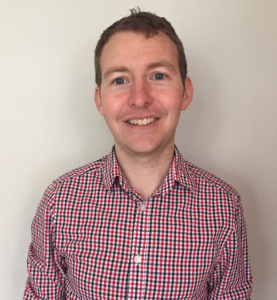Attempts to ban the term “SHO” seem heavy handed and out of touch
 More than 10 years after senior house officer (or SHO) was officially expunged by the Modernising Medical Careers (MMC) programme and its creation of the new training grades FY2-CT2, the term retains a stubborn currency. The informal persistence of the old nomenclature seems to be the cause of some well intentioned consternation from regulators and inspectors.
More than 10 years after senior house officer (or SHO) was officially expunged by the Modernising Medical Careers (MMC) programme and its creation of the new training grades FY2-CT2, the term retains a stubborn currency. The informal persistence of the old nomenclature seems to be the cause of some well intentioned consternation from regulators and inspectors.
Recently a would be social media campaign #SayNoToSHO was met with a small ripple of derision on Twitter. In contrast to campaigns like #HelloMyNameIs, which have inspired sincere reflection on practice and improved communication globally, the consensus on social media seemed to be that prohibiting the term SHO is a draconian solution in need of a problem.
I have been dimly aware of the official displeasure with SHO for some years. As a trainee a few years ago, I received letters from the deanery and my trust addressed to all trainees that solemnly prohibited reference to SHO. Such correspondence is rare and was presumably informed by feedback from an inspection or quality assurance visit. A brief Google search reveals that at least one other trust has had to contritely commit to the “elimination” of SHO.
The theory goes that since SHO can refer to trainees across at least three years of training, it introduces ambiguity as to the experience of the individual. There may be something to this idea. I have never worked as a middle grade or senior hospital doctor so my perspective is limited. For senior doctors though, maybe the routine use of terms that pinpoint more precisely where a doctor is in their training could be helpful.
Although in my own experience diligence, rather than time served, marks the reliability of colleagues. I find that a great deal of circumspection and avoidance of assumption is warranted on all phone referrals. Not infrequently, I have had cause to trust in the judgment of more junior colleagues over more senior SHOs. Personally, I can’t imagine having ever objected to an enquiry as to my designation (e.g. GPST2) though I don’t recall frequently (if ever) being asked on the phone.
One benefit of terms like SHO, registrar, and consultant is that almost everyone—not just doctors, but also nurses, allied health professionals, and administrative staff—understands them. The principle reason for this is probably that, despite the MMC, SHOs still exist.
Most junior doctor rotas are still broken down by FY1 (house officer in the pre-MMC world), SHO, and registrar. Many SHOs work as staff grade, locum, or in standalone posts and don’t have a FY2-CT2 designation. Because of the official prejudice against SHO, trusts are now under pressure to find less well understood terminology to describe precisely the same rotas.
Precision matters. On written notes designation should, and in my experience almost always does, follow the doctor’s printed name and signature. I have always been uncomfortable with the term of GP registrar and always opted for GP trainee. Yet the kind of action that would be required to abolish the useful shorthand SHO, and the confusion of inventing new terms to describe the same thing, makes the effort appear ludicrous.
This insistence on stamping out SHO belongs to one of a multitude of irritations: each in isolation is almost inconsequential, but in combination they become utterly corrosive to morale. I still can still recall the sense of deflation and slight resentment I felt on being chided not to say SHO during a morning handover after an arduous night shift more than two years ago.
However well intentioned they are, injunctions like this can seem out of touch with the daily slog of keeping the NHS afloat. My understanding of the concerns raised about SHO may well be incomplete, but if there are any compelling reasons as to why we should not use SHO these should at least be well understood and articulated.
#SayNoToSho is unlikely to fire the imagination of doctors or lead to a significant change in practice—at least not voluntarily. To be fair, the trust that originated the hashtag was quite laudably attempting to achieve buy-in among staff for culture change that was likely mandated by external agencies. The useful, if imperfect, term SHO is likely to persist as long as SHOs exist. Perhaps we should accept that so we can focus our efforts on the problems that really need to be addressed.
Stephen Bradley is a GP and clinical research fellow, having completed training in September 2016. Twitter @DryBreadnRadio
Competing interests: I worked as a SHO from 2013 to 2016. I have worked as a junior doctor representative on care quality inspections and I serve on the General Medical Council’s PLAB part 2 committee. I was a guardian of safe working hours from November 2016 to June 2017.
